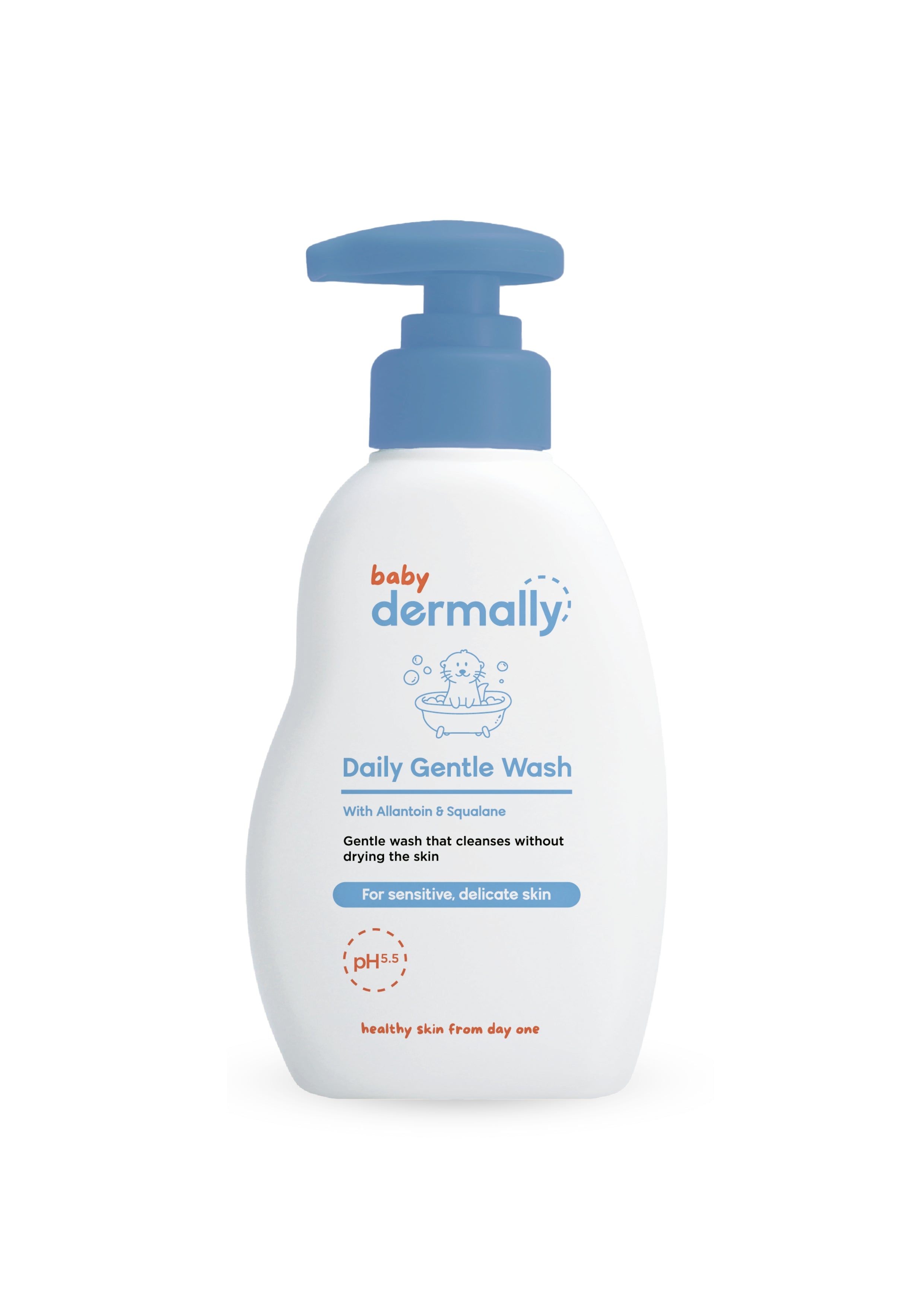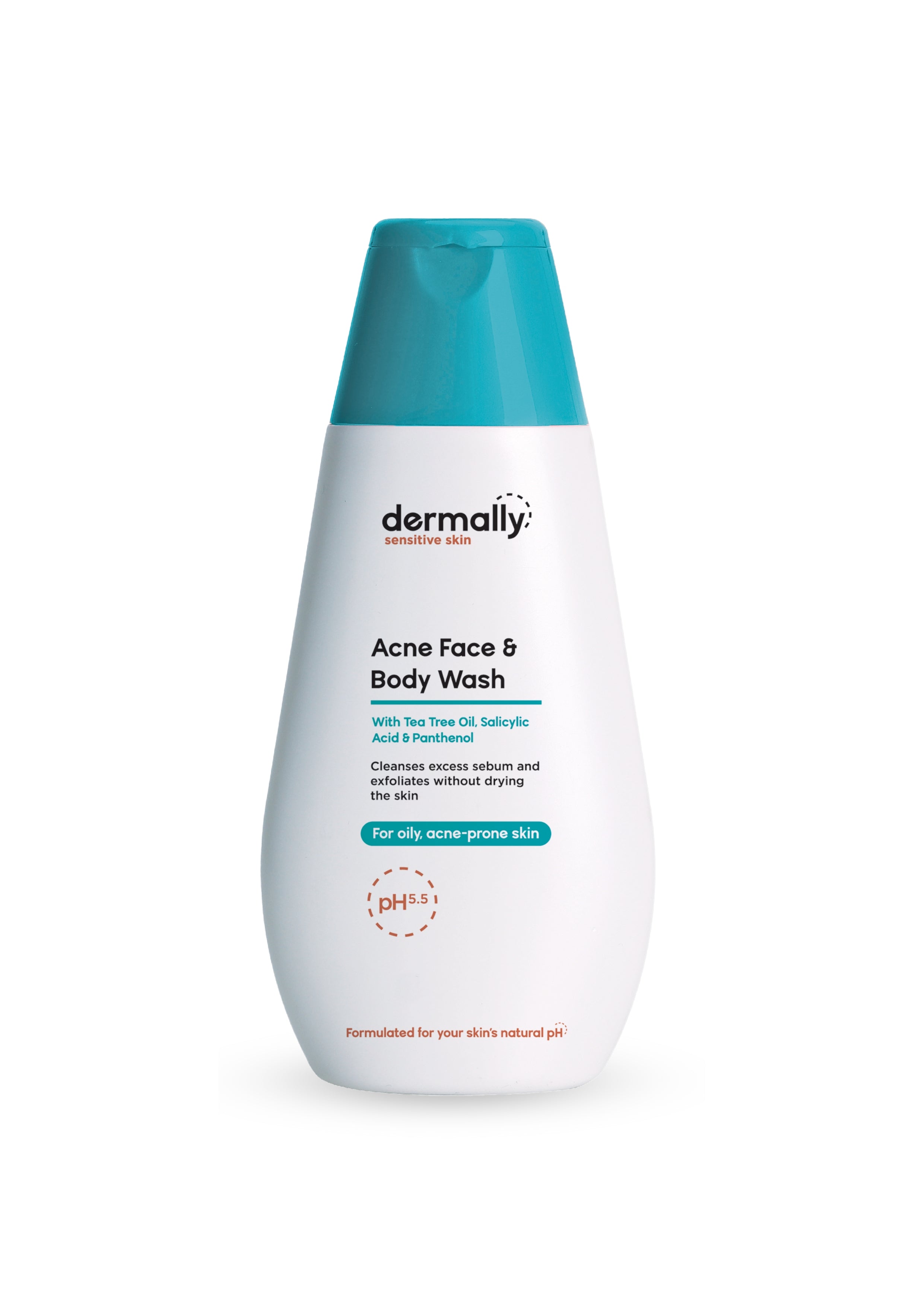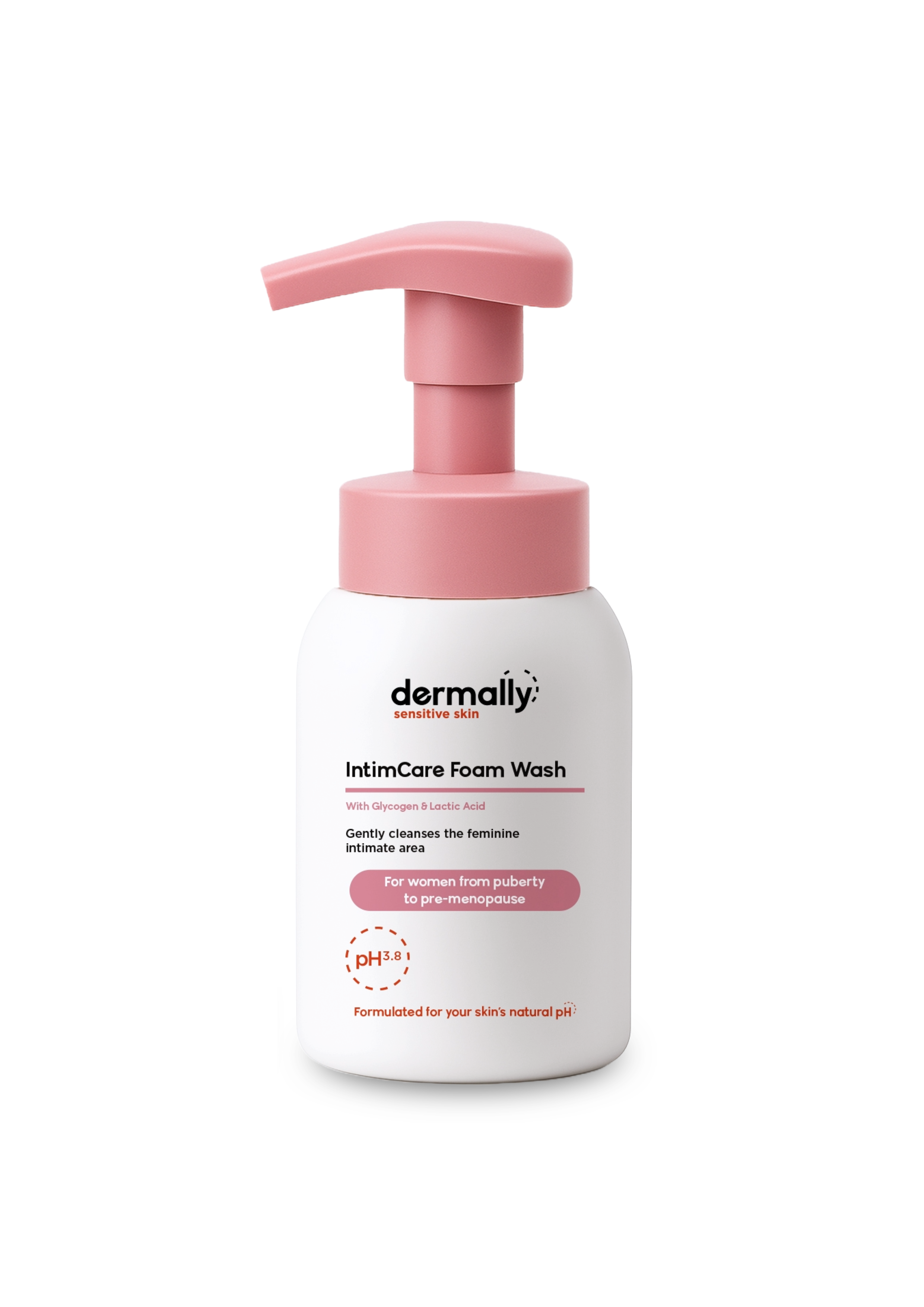A baby’s skin is soft, delicate, and often more reactive than adult skin. With the skin barrier still developing during the first few years of life, babies are more prone to common skin issues that can appear worrying to new parents. Thankfully, most of these conditions are harmless, manageable, and treatable with the right skincare approach.
In this article, we break down five of the most common baby skin concerns: eczema, baby acne, cradle cap, diaper rash, and heat rash. Learn how to identify them, what causes them, and how best to care for your baby’s skin.
1. Eczema (Atopic Dermatitis)
Eczema is a chronic, inflammatory skin condition that often appears as red, dry, itchy patches. In babies, it commonly affects the cheeks, scalp, arms, and legs.
Did you know? Up to 20% of children worldwide are affected by eczema at some point in early life.
Common Triggers
- Harsh soaps or cleansers
- Allergens
- Heat, sweat, and rough fabrics
-
Environmental irritants like dust or pollen
How to Care for Baby Skin with Eczema:
- Use gentle, pH 5.5 cleansers that won’t strip the skin
- Moisturise daily to strengthen the skin barrier
- Avoid over-bathing, and use lukewarm water
-
Dress your baby in soft, breathable fabrics
Dermally Recommends:
- Baby Dermally Daily Gentle Wash - A mild, soap-free cleanser with skin-friendly surfactants and a skin-balanced pH.
-
Baby Dermally Daily Moisturizing Lotion - Contains soothing agents and barrier-repairing ingredients like glycerin and panthenol to keep eczema-prone skin soft, hydrated, and calm.
2. Baby Acne
Baby acne typically appears within the first few weeks of life and usually resolves on its own. It shows up as small red or white bumps, mostly on the cheeks, forehead, or chin.
Causes:
- Hormonal changes after birth
- Maternal hormones passed through the placenta
-
Overstimulation of oil glands
How to Care for Baby Skin with Acne:
- Keep the skin clean using a gentle, hypoallergenic cleanser
- Avoid harsh scrubbing or using acne treatments meant for adults
- Let the skin breathe - avoid occlusive creams or thick oils
Dermally Recommends:
- Baby Dermally Daily Gentle Wash - Non-drying, soap-free, and non-comedogenic. Effectively cleanses without aggravating delicate or acne-prone baby skin.
- Baby Dermally Daily Protective Face Cream - A light, protective moisturiser that supports skin recovery while respecting the natural skin barrier.
3. Cradle Cap (Infantile Seborrheic Dermatitis)
Cradle cap causes greasy, yellowish scales or flakes on a baby’s scalp and sometimes eyebrows. It’s not contagious or itchy and typically clears up within a few weeks to months.
Causes:
- Overproduction of sebum
- Natural response to maternal hormones
-
Possible yeast (Malassezia) involvement on the scalp
How to Care for Cradle Cap:
- Gently massage the scalp with fingertips or a soft brush
- Use a gentle wash to cleanse away excess oil
- Avoid picking or forcefully removing the flakes
Dermally Recommends:
- Baby Dermally Daily Gentle Wash - Gentle enough for daily use on the scalp and body. Helps cleanse without disrupting the skin’s microbiome.
4. Diaper Rash (Irritant Contact Dermatitis)
This red, inflamed rash appears in the diaper area and is often caused by prolonged exposure to moisture, urine, or stool.
Causes:
- Friction and trapped moisture
- Sensitivity to diapers or wipes
- Introduction of new foods
-
Yeast or bacterial infection (if severe or persistent)
How to Care for Diaper Rash:
- Change diapers frequently and allow diaper-free time
- Gently cleanse the area with warm water or a mild wash
- Apply a protective barrier cream regularly
Dermally Recommends:
- Baby Dermally Daily Gentle Wash - Mild cleanser that can be safely used on the diaper area without causing any stinging.
- Baby Dermally Daily Nappy Barrier Cream - Forms a breathable barrier using titanium dioxide, panthenol, and other soothing ingredients to prevent and calm irritation.
5. Heat Rash (Prickly Heat / Miliaria)
Heat rash appears as tiny red bumps or blisters, especially in skin folds and areas where sweat is trapped. It’s common in hot, humid climates like ours here in Singapore.
Causes:
- Hot weather and overheating
- Blocked sweat glands
-
Tight or heavy clothing
How to Care for Heat Rash:
- Dress baby in breathable, lightweight clothing
- Keep the skin cool and dry
- Use a light, non-occlusive moisturiser to soothe discomfort
Dermally Recommends:
- Baby Dermally Daily Gentle Wash - Cools and refreshes without drying out the skin, ideal for frequent cleansing in hot weather.
- Baby Dermally Daily Moisturizing Lotion - Lightweight yet hydrating, this lotion helps soothe irritated skin and maintain a healthy skin barrier.
Tips for Parents
- Always patch test new products before applying them widely.
- Consult your paediatrician or dermatologist if symptoms worsen or persist.
- Be mindful that not all baby skin conditions require aggressive treatment; gentle care often goes a long way.
When to Seek Medical Advice
While most of these conditions are harmless and temporary, you should consult a healthcare professional if:
- The rash worsens, spreads quickly, or becomes weepy
- Baby seems distressed, feverish, or in pain
- You're unsure whether it's a skin condition or an allergic reaction
At Dermally, we believe in supporting baby skin with dermatologically tested, pH 5.5 formulas that are safe, effective, and thoughtfully formulated, even down to the hypoallergenic FEMA GRAS-approved fragrance.
Whether you're a first-time parent or simply seeking better skin solutions for your child, remember: you’re not alone on this journey.
Together with Baby Dermally, let’s nurture healthy skin from day one.








